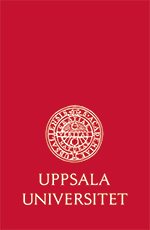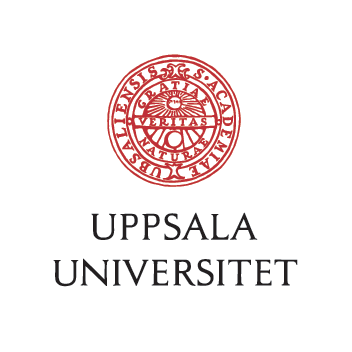HCEE: Humanization of Computing and Engineering Education
May 29-31, 2024
HCEE (Humanization of Computing and Engineering Education) is an in-person event with the goal of fostering a community of academics in these disciplines and related ones. The topic of humanization is understood in different ways throughout the different editions of HCEE. The first HCEE, in 2023, focused on care and emotions in computing and engineering education, and concluded with Virginia Grande's PhD defense . In 2024, the focus is on topics connected to capital and participation in higher education, and is connected to Thom Kunkeler
. In 2024, the focus is on topics connected to capital and participation in higher education, and is connected to Thom Kunkeler 's Licentiate seminar.
's Licentiate seminar.
We aim for HCEE to be interactive, and a platform for academics to make new connections and strengthen previous ones. Thus, the program strongly focuses on networking for academics of all experience levels. Everyone is invited to participate to their own level of comfort, and suggestions to adapt the program to other approaches with the same goal are very welcome.
Registration is free and open now by filling out this form . We are thankful for the funding for PhD students to attend HCEE, especially the doctoral consortium, provided by the Equal Opportunities Group at the Department of Information Technology at Uppsala University.
. We are thankful for the funding for PhD students to attend HCEE, especially the doctoral consortium, provided by the Equal Opportunities Group at the Department of Information Technology at Uppsala University.
We look forward to meeting you in Uppsala! Information on how to find your way to and on campus can be accessed here .
.
The event is arranged by Uppsala Computing Education Research Group (UpCERG) and collaborators, with additional financial support from MINT - Centre for Discipline-Based Education Research in Mathematics, Engineering, Science and Technology at Uppsala University.
Questions can be directed to Virginia Grande (they/them) (virginia.grande@it.uu.se)
(they/them) (virginia.grande@it.uu.se)
Program
There are planned activities for three days:
- May 29th: doctoral consortium (DC)
- May 30th: interactive sessions, including networking
- May 31st: networking (morning), Thom Kunkeler's licentiate seminar (afternoon)
Below is a preliminary program, with session times subject to change.
May 29th: Doctoral Consortium (DC)
| Time (CET - Central European Time) | Description | Mentors | Venue |
|---|---|---|---|
| 13.00-17.00 | Doctoral Consortium | Aletta Nylén, Calkin Suero Montero (she/her), Mats Daniels (UpCERG), Urban Eriksson (PER); Uppsala University (she/her), Mats Daniels (UpCERG), Urban Eriksson (PER); Uppsala University |
Å101130 |
PhD students in computing and engineering education are welcome to submit their interest in participating in the DC. The mentors will be senior researchers in these areas, from UpCERG and collaborators.
Participants will be selected by looking for a diverse set of topics and backgrounds. Thus, PhD students are encouraged to include a brief description of the PhD student's topic (100-200 words) in the registration form for HCEE.
for HCEE.
While we set April 13th as a preliminary deadline for applications to the DC, PhD students are welcome to submit later if they need more time (please contact Virginia Grande if so). If the PhD student is selected for the DC, further preparations will be requested: an extended abstract of their work by May 24th and a poster to bring to the event. The poster will be used later in HCEE for the networking aspects of the event.
May 30th: Interactive sessions and networking
| Time (CET - Central European Time) | Description | Speaker(s) / Facilitator(s) | Venue |
|---|---|---|---|
| 9.00-9.30 | Registration and opening | Virginia Grande (they/them), Uppsala University | Å101130 |
| 9.30-10.30 | (Keynote) Charting the Course: Navigating Computer Science Capital from Pre-University to Graduation Computer science as a field of study has grown exponentially, with schools worldwide emphasising its importance in shaping the future workforce. Yet, while the acquisition of computer science capital in school settings often influences students' decisions to pursue higher education in Computing, its role in resilience and persistence at the university level remains complex and multifaceted. This talk builds a narrative into the relationship between computer science capital, academic choices, persistence, and university values and culture. Through a critical lens, it examines how some undergraduate CS students accrue capital not merely for academic success but often as a means of “surviving” the field. However, the fundamental question arises: should the pursuit of computing education be reduced to a matter of survival? Challenging conventional narratives, the talk continues with an exploration of how universities pursue of external goods shapes practices and consequently, students' epistemic values of Computing, questioning whether they foster environments conducive to inclusivity, environments that contribute to the social and common good, and a just and equitable society through computing education. |
Maria Kallia (she/her), University of Glasgow (she/her), University of Glasgow |
Å101130 |
| 10.30-10.45 | Coffee break | ||
| 10.45-11.45 | Academic Resilience in Science Education Science education has been expressing great interest in inequalities regarding students’ achievement and participation in science by gender, ethnicity, and socioeconomic status. Studies carried out in numerous national contexts suggest that students with adverse backgrounds, such as low socioeconomic status, low educated parents, and minoritised groups, are associated with academic underachievement. Some underprivileged students, however, manage to perform outstanding educational outcomes despite their adverse backgrounds. The dynamic process in which these students negotiate, adapt to, and cope with their circumstances is often referred to as ‘academic resilience’ (Wang et al., 1994). This phenomenon is relevant to studying educational inequalities in science, especially focusing on groups of minoritised students. This talk will discuss how these minoritised students overcome their adversities to perform well in school. What resources are available to support these students in such circumstances? Some empirical research results will also be presented. |
Nhu Truong (she/her), Stockholm University (she/her), Stockholm University |
Å101130 |
| 11.45-12.45 | Lunch break | ||
| 12.45-14.00 | Networking session: Flash Connect! Flash Connect! is a networking activity where participants start with a quick lightning introduction: sharing who they are, what they do, and why they are present. This information will additionally be displayed on a profile wall so that other participants can express their interest in the connection by leaving a post-it note with their name and contact details. |
Bedour Alshaigy (she/they), Uppsala University ; Kristina von Hausswolff (she/her), Mälardalens University (she/her), Mälardalens University |
Å101130 |
| 14.00-14.15 | Coffee break | ||
| 14.15-15.30 | Capital in education Interactive session with academics who have worked on capital, including science capital and computing capital. This session acts as an introduction to concepts that are used in Thom Kunkeler's work, defended the day after. |
Heather King (she/her), King's College; Håkan Forsberg, Uppsala University (she/her), King's College; Håkan Forsberg, Uppsala University |
Å101130 |
| 15.30-16.00 | Coffee break | ||
| 16.00-16.45 | Networking session: questions around fika Participants will enjoy a fika break while freely socialising around themed tables. Each table will be designated with a specific theme and accompanying questions related to that theme. Participants can choose which table to join based on their interests and engage in discussions. Example themes: mentoring and support, academic publishing, work-life balance strategies, datavetenskap och ingenjörsutbildning i Sverige. |
Bedour Alshaigy (she/they), Uppsala University ; Kristina von Hausswolff (she/her), Mälardalens University (she/her), Mälardalens University |
Å101130 |
| 16.45-17.00 | Concluding remarks/Wrap-up A reflection on the past, present and future of HCEE: topics, speakers, etc. | Virginia Grande (they/them), Uppsala University | Å101130 |
May 31st: Networking and Thom Kunkeler's licentiate seminar
| Time (CET - Central European Time) | Description | Speaker(s) / Facilitator(s) | Venue |
|---|---|---|---|
| 10.00-12.15 | Networking session (with a break): world café discussion The session adopts a World Café structure to allow participants to engage in dynamic discussions around the key elements of computing and engineering education in Sweden and neighbouring countries that participants expressed in the registration form (point 7). The focus is on exploring shared interests, fostering connections, and potentially creating future collaborations among the academic community in these fields. |
Bedour Alshaigy (she/they), Uppsala University ; Kristina von Hausswolff (she/her), Mälardalens University ; Camilla Björn (she/her), Mälardalens University ; Camilla Björn (she/her), KTH Royal Institute of Technology (she/her), KTH Royal Institute of Technology |
Å101130 |
| 12.15-13.15 | Lunch break | ||
| From 13:15 | Thom Kunkeler's licentiate seminar Title: Capital and the Social Reproduction of Inequality in Computing Education The licentiate thesis is available here |
Thom Kunkeler (he/him), Uppsala University; Opponent: Heather King (he/him), Uppsala University; Opponent: Heather King (she/her), King's College (she/her), King's College |
Å101130 |


